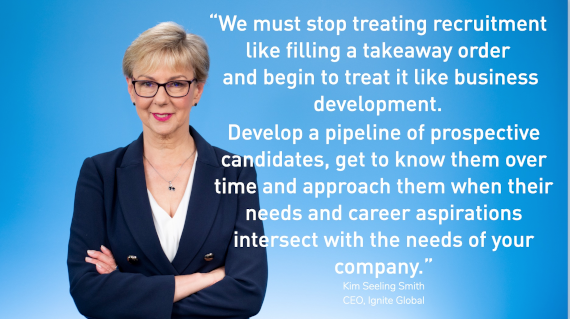|
|
|
|
|
|
|
|
|
Dear reader,
Welcome to the July 2021 edition of The Director's Dilemma. Each month this newsletter looks at a real-life scenario that happened to a board, perhaps to a board like yours, and considers a range of responses. The scenarios are de-identified to protect the individuals concerned. This we look at the pros and cons of combining directorship with an executive role.
Of course, these scenarios are general, written to help you with practical information without the risks that attach to living these situations in real-life. I work with boards and directors as a confidential mentor to help them build great companies and maximise their impact. If you would like personalised service please call me. For the month of July, I will be offering a 10% discount on all new engagements for strategy workshops, governance workshops, and director mentoring. Think of it as a new financial year gift to reward you for investing in your board capability.
To read this email in a web browser, go to www.mclellan.com.au/newsletter.html and click on 'read the latest issue'. I hope you will enjoy the latest dilemma:
 Ivana is the company secretary of a small start up that became a promising scale-up and is now preparing to list. For the past few months the board has been seeking new directors whom they wish to appoint to the board at least six months ahead of the listing. Ivana is the company secretary of a small start up that became a promising scale-up and is now preparing to list. For the past few months the board has been seeking new directors whom they wish to appoint to the board at least six months ahead of the listing.
Legal skills are on the list that the directors hope to cover in their skills matrix. So far they have not really warmed to any of the legally qualified aspirants they have interviewed. All seemed too focused on the law and not enough on the business.
At the board meeting last week the chair suggested that Ivana should become a director. To Ivana's surprise the other directors, once recovered from the shock of a new idea, really supported her joining their number. Now that she has thought about it, Ivana likes the idea too. She had always wanted to be a director at some stage but had never thought it would happen with this company and these colleagues.
She has checked and, in Australia, there is no law against combining the roles.
The chair has given her some time to think about the proposal and they will have a coffee and talk about it next week.
What course of action would you recommend her to take?
|
|
|
|
Alexander's Answer
 This is a wonderful opportunity for Ivana. Aspiring board members dream of being approached to join a board. This is a wonderful opportunity for Ivana. Aspiring board members dream of being approached to join a board.
That said, this situation is not without risk. Ivana would need to wear two hats simultaneously: company secretary and board member. These are distinct roles with different responsibilities. She would need to set clear expectations, especially for how she participates during certain discussions.
The company secretary is responsible for the efficient administration of a company, particularly with regard to ensuring compliance with statutory and regulatory requirements and for ensuring that decisions of the board are implemented. She also keeps board members informed of their legal responsibilities.
It's easy to imagine where Ivana could run into difficulty. Consider the situation where the board is engaged in a complex legal discussion. Unless Ivana is clear on how she's addressing the situation - i.e. whether she's speaking as company secretary or in her board member role - other directors could misconstrue her comments to be legal advice when Ivana might only be thinking out loud as a board member in regards to possibilities and implications.
Fortunately, Ivana already knows both the company and the board. This short circuits the incredibly important, yet often challenging, process of due diligence. As the company secretary, Ivana probably already has a strong working relationship with each board member. As a result, she knows whether she can work effectively with this group.
On the whole, this seems like an amazing opportunity for Ivana to not just secure her first board role but to be an effective director. And that's the important first step to eventually landing other board seats.
Alexander Lowry is a non-executive director of YMCA of the North Shore, professor of Gordon College, former Fortune 50 Division COO, and host of the popular Boardroom Bound podcast. He is based in Boston, Massachusetts, USA.
|
|
|
|
Julie's Answer

There is no legal reason for Ivana to decline this invitation; there are plenty of practical ones.
The company is preparing to list within the next 6 to 9 months. That is a really busy time for the company secretary.
When the board members are all appointed the company will need to create a due diligence committee, gather all the verification and prospectus material, and undertake one of the most detailed and careful processes in the company's history. The directors will need their company secretary for frank and fearless advice. They will rely on her for flawless completion of the intricate work of gathering, cataloging, and verifying their due diligence materials.
Board meetings will need to be minuted carefully so that decisions are defensible even if hindsights shows them to have been incorrect.
Ivana's role as company secretary is so important that it will be hard to combine with any other role, let alone the role of a director in an IPO.
And that is before we consider the role conflict of the board in overseeing and supervising the company secretary when she is a board member.
This is, however, a great vote of confidence in Ivana's ability to bring good legal and compliance thinking together with good business acumen. She should explore how the board might feel if she relinquished the company secretary role and appointed a new company secretary. Is there time for a new qualified secretary to get familiar enough with the company to take on the role without delaying the IPO? Or can she agree to take on the role sometime after the IPO, when the role clash will be more manageable?
Julie Garland McLellan is a non-executive director and board consultant based in Sydney, Australia.
|
|
|
|
Lauren's Answer
 As the GC/Secretary for the company, Ivana's primary role is to serve as an advisor to the board. She needs to go beyond what the law states to investigate how institutional investors and other governance experts would view combining the roles. As the GC/Secretary for the company, Ivana's primary role is to serve as an advisor to the board. She needs to go beyond what the law states to investigate how institutional investors and other governance experts would view combining the roles.
Independence of directors - putting the corporation's interest ahead of their own - is critical. CEOs and sometimes CFOs hold the dual role of director and management, a GC/Secretary may struggle to advise the board regarding thorny governance issues while also sitting on the board.
In the US, a non-independent director otherwise known as an "inside director" in not permitted to sit on the Audit, Compensation or Nominating/Governance committee.
Therefore, if Ivana joined the board, she would not be able to add value to any of these committees.
In summary, there are three key reasons for Ivana not to accept the director role:
-
May not be viewed favourably by shareholders.
-
Could create a conflict of interest with her day job.
-
Would be unable to add value to any of the committees because she is not an independent director.
When she declines, she can offer help to find the right female director by leveraging resources such as Women Corporate Directors, NACD or an experienced board search firm. Reminding the CEO that her decision was in the best interest of the company, she could then ask for the CEO's help to find a directorship with another company to deepen her knowledge of governance and expand her experience base.
Lauren Smith is President NACD Florida and NACD Research Fellow, she is also Managing Director at Diversified Search and is based in Miami, Florida, USA.
|
|
|
|
Julie’s News
In June I was happily busy. In addition to my own board roles I had the great pleasure of:
-
Appearing as a guest in a podcast on leadership with the great Sally Foley-Lewis. You can watch the episode here.
-
Meeting some wonderful new aspiring and emerging directors at my Due Diligence for Directorships course with Chartered Accountants ANZ.
-
Delivering the Effective Director Course for the Governance Institute of Australia, again, really enjoying the great participants.
-
Running a course on Companies About to List and a course on Directors and Board-related Risks which are new rewritten material (a Covid-creativity bonus).
-
Mentoring some high potential emerging directors who give me great confidence in the future of governance leadership in Australia.
-
Hearing the amazingly beautiful voice of Kate Ceberano, singing live for a select group that included several friends from Women on Boards at Elizabeth Bay House, which is a beautiful 'living museum'.
I'm now looking forward to July and hoping to do even more work. If I can help you or your board, please reach out to me for a conversation. As a reward for investing in your board skills all engagements in July will receive a 10% discount on the usual fee. You can book a time with this link.
Inspirational quote for July

This is especially true at the board level. Developing a relationship with a pipeline of valuable potential future directors is a great activity for your board.
Do you know where to focus for maximum impact? – boards often struggle to get cut through and drive company performance. They work hard, then they work harder, then call in a consultant who recommends some changes, then they work harder still.
If that sounds like your board, don't worry. It is likely that you have simply been focusing on the wrong stuff. I have made a diagnostic tool that might help you to prioritise the actions that will free your board from the drudgery and allow you to maximise your impact. You can take the diagnostic here:
https://directorsdilemma.scoreapp.com
Call me afterwards for help with revitalising your board.
A note on names - A few readers have asked me where I find the names for the protagonists in each case study; I 'borrow' them from people I meet or things that I read. Ivana is a name of Slavic origin that means 'gift from heaven'. The first invitation to join a board can truly feel like a gift from haven; it should also feel like something to be thoroughly investigated and analysed prior to accepting.
This newsletter - If you have any ideas for improving the newsletter please let me know. If you are reading a forwarded copy, please visit my website and sign up for your own subscription.
Suggestions for dilemmas - Thank you to all the readers who have suggested dilemmas. They are greatly appreciated. I will answer them all eventually. I could not write this newsletter without your help and without the generous help of all the experts who respond each month to the case studies.
Be a contributor - If you would like to attempt a response to the dilemmas for publication you will be most welcome. Simply reply to this email and let me know.
Let's connect - I use LinkedIn to share information about boards and directorship with my friends and acquaintances. If you use LinkedIn and we are not yet connected I will welcome a connection from you. You can find me at linkedin.com/in/juliegarlandmclellan.
Let me help you - I would be delighted to speak for or train your board, staff, audience and/or group. If I can help, please contact me at julie@mclellan.com.au.
Farewell until the next issue due 1 August 2021. I look forward to greeting you again then. In the interim I hope you will enjoy health, happiness and hard work.
Enjoy governing your companies!
Best regards,
Julie

Main Photo by Edmond Dantes from Pexels
Quote Illustration Kim Seeling Smith of Ignite Global
Disclaimer:
The opinions expressed above are general in nature and are designed to help you to develop your judgement as a director. They are not a definitive legal ruling and do not constitute legal advice. Names and some circumstances in the case study have been changed to ensure anonymity. Contributors to this newsletter comment in the context of their own jurisdiction; readers should check their local laws and regulations as they may be very different.
Privacy: I am privileged to have your contact details and keep them as safely as possible. I will alert you if they are ever accessed by any unauthorised person (the technical staff at ayuda help with publishing and issuing the Director's Dilemma and have access so they can send the newsletters to you). I do not sell your details to anyone; they are kept only for the intended purpose - sending you this newsletter and helping to build the judgement of company directors by providing a safe way to consider potential responses to real life events.
|
|
|
|
|
|
|
 Ivana is the company secretary of a small start up that became a promising scale-up and is now preparing to list. For the past few months the board has been seeking new directors whom they wish to appoint to the board at least six months ahead of the listing.
Ivana is the company secretary of a small start up that became a promising scale-up and is now preparing to list. For the past few months the board has been seeking new directors whom they wish to appoint to the board at least six months ahead of the listing.
 This is a wonderful opportunity for Ivana. Aspiring board members dream of being approached to join a board.
This is a wonderful opportunity for Ivana. Aspiring board members dream of being approached to join a board.
 As the GC/Secretary for the company, Ivana's primary role is to serve as an advisor to the board. She needs to go beyond what the law states to investigate how institutional investors and other governance experts would view combining the roles.
As the GC/Secretary for the company, Ivana's primary role is to serve as an advisor to the board. She needs to go beyond what the law states to investigate how institutional investors and other governance experts would view combining the roles.
